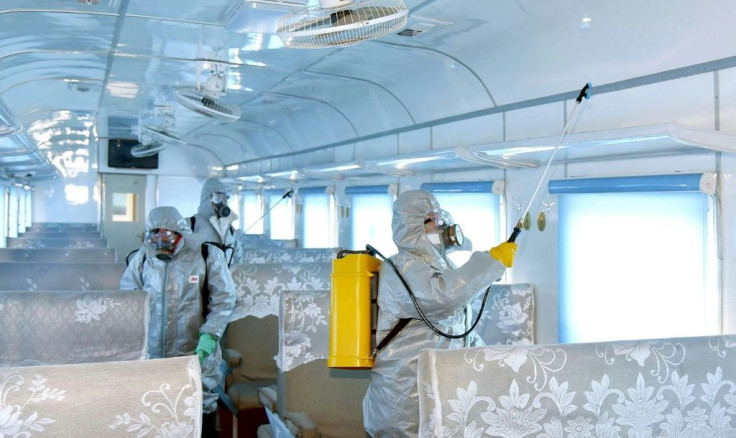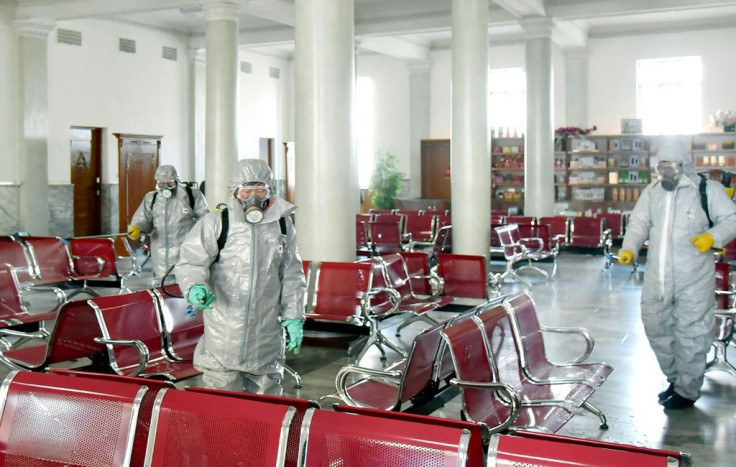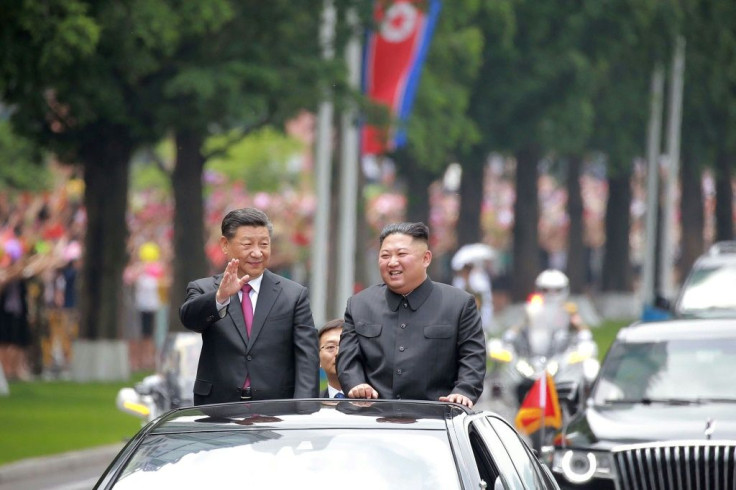Coronavirus Threatens North Korea Chaos: Analysts

North Korea's self-imposed isolation in the face of the coronavirus epidemic raging in neighbouring China is its only method of protection from an outbreak that would wreak havoc given its crumbling health system, analysts say.
The country was among the first to seal its border with China -- its main provider of trade and aid -- and has since suspended flights and train services, banned tourists, and imposed 30 days of quarantine on resident foreigners.
Authorities insist they are in control, with the official Rodong Sinmun newspaper reiterating Friday that: "Fortunately, the new coronavirus infection has not yet entered our country."
But medical infrastructure in North Korea -- which is subject to multiple international sanctions over its nuclear and ballistic missile programmes -- is weak, with inconsistent water and electricity supplies to hospitals and chronic shortages of medicines.
"If there is an outbreak, the North Korean system will be helpless," said Choi Jung-hun, a former North Korean doctor who defected to South Korea in 2012. "It will spiral out of control."
According to the UN Office for the Coordination of Humanitarian Affairs, North Korea lacks "essential medicines, laboratory consumables and diagnostics; medical, therapeutic and diagnostic equipment and supplies for critical and emergency health interventions".
It ranked 193th out of 195 countries -- ahead of only Somalia and Equatorial Guinea -- in the 2019 Global Health Security Index by the Johns Hopkins Center for Health Security.
Pyongyang has previously resorted to similar methods of national self-quarantine in the face of perceived biological threats.
It banned tourists for more than four months from October 2014 to keep out the Ebola virus, even though no cases had been reported in Asia.

And it clamped down on travel for six months during the Severe Acute Respiratory Syndrome (SARS) outbreak of 2002-03, which killed nearly 650 people across mainland China and Hong Kong.
During a measles outbreak in 2006, Choi -- now a research professor at Korea University's Public Policy Research Institute -- was stationed on trains from Chongjin to Pyongyang with orders to detect any passengers with signs of fever.
"By the time the train reached Pyongyang, all suspected patients had been removed," he said, adding all efforts were concentrated on protecting the capital.
"The most crucial point is defending the leadership in Pyongyang," he told AFP, noting the current virus scare had kept leader Kim Jong Un away from the public eye for more than three weeks.

North Korean state media has been full of coverage in recent weeks of the anti-virus effort, calling it a fight for "national survival".
Masked officials have been pictured holding emergency meetings and workers disinfecting public places such as railway stations and schools, and the citizens who paid tribute to Kim's father and predecessor Kim Jong Il on the anniversary of his birth at the weekend also wore masks.
The World Health Organization has not contradicted Pyongyang's denial of cases, with its head of health emergencies programmes Michael Ryan telling reporters: "At the moment, there are no signals or indications that we are dealing with any COVID-19 there."
But defectors and South Korean media reports claim there have been infections, and Thae Yong Ho, the former North Korean deputy ambassador to London who defected in 2016, cast doubt on the reliability of the WHO's information.
The movement restrictions imposed by Pyongyang were "very abnormal", he said, and that meant international organisations present in North Korea had no way of establishing facts for themselves.
"The only information the WHO office in Pyongyang can get is the one-way single information from the regime."
Pyongyang has always denied it had any cases of SARS, but doctor Choi told AFP the virus could not be diagnosed because of a lack of equipment. "The North Korean authorities could not determine if a patient had died from SARS or something else."
The novel coronavirus now known as COVID-19 originated in Hubei and has since spread to every Chinese province, killing more than 2,000 people, with cases reported in more than two dozen countries.
The two Chinese provinces neighbouring North Korea, Jilin and Liaoning, have recorded more than 200 cases between them according to official figures, with transport and residential restrictions imposed in the Chinese frontier cities of Dandong and Yanji.
Pyongyang had rushed to adopt an "all-out prevention strategy", said Kee Park, a Harvard Medical School lecturer who has taken part in 18 medical missions to North Korea, adding the impoverished state was paying a "not trivial" price to do so.
"These measures reflect the realistic assessment by the government of its fragile health system."
© Copyright AFP {{Year}}. All rights reserved.





















